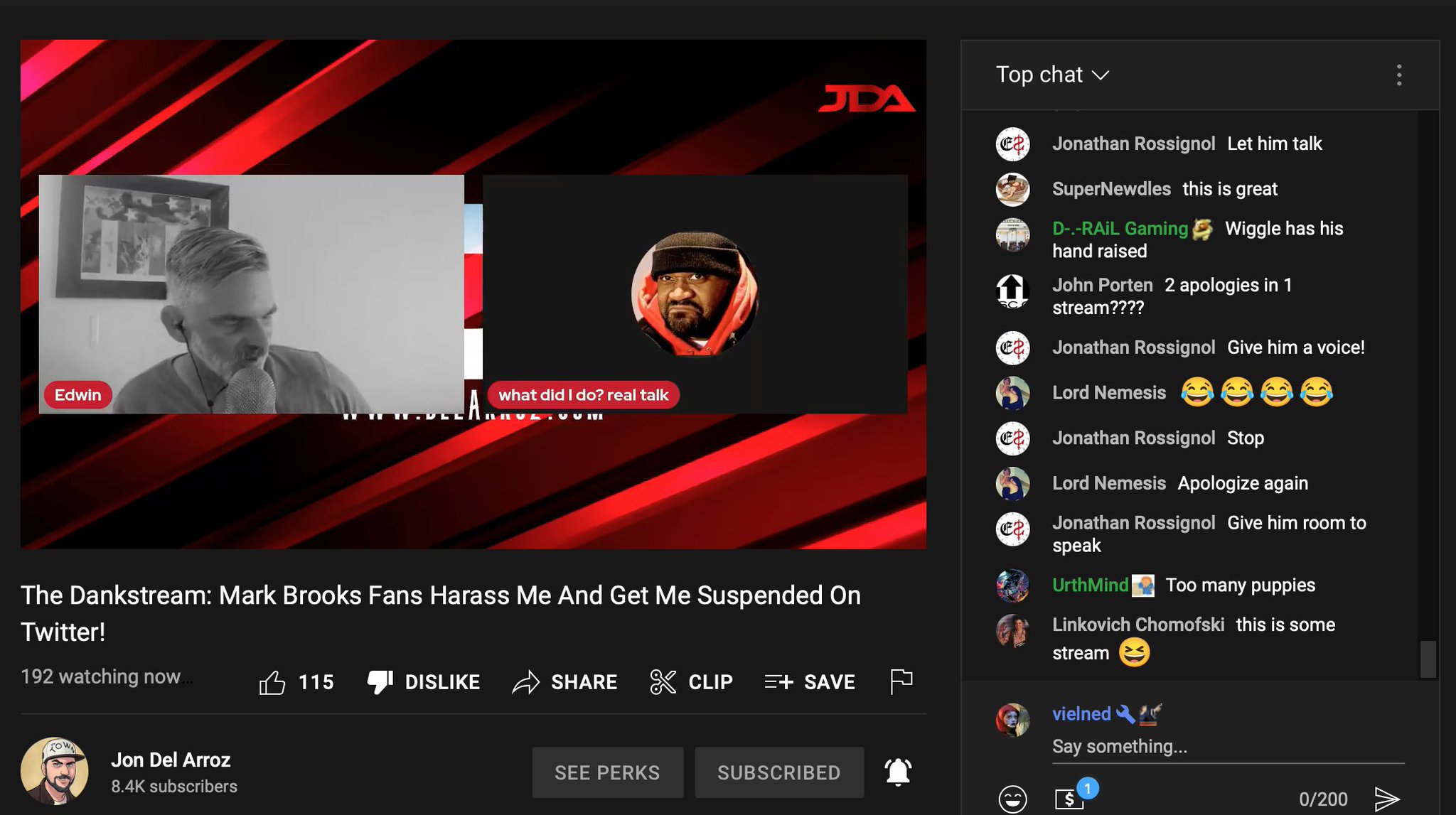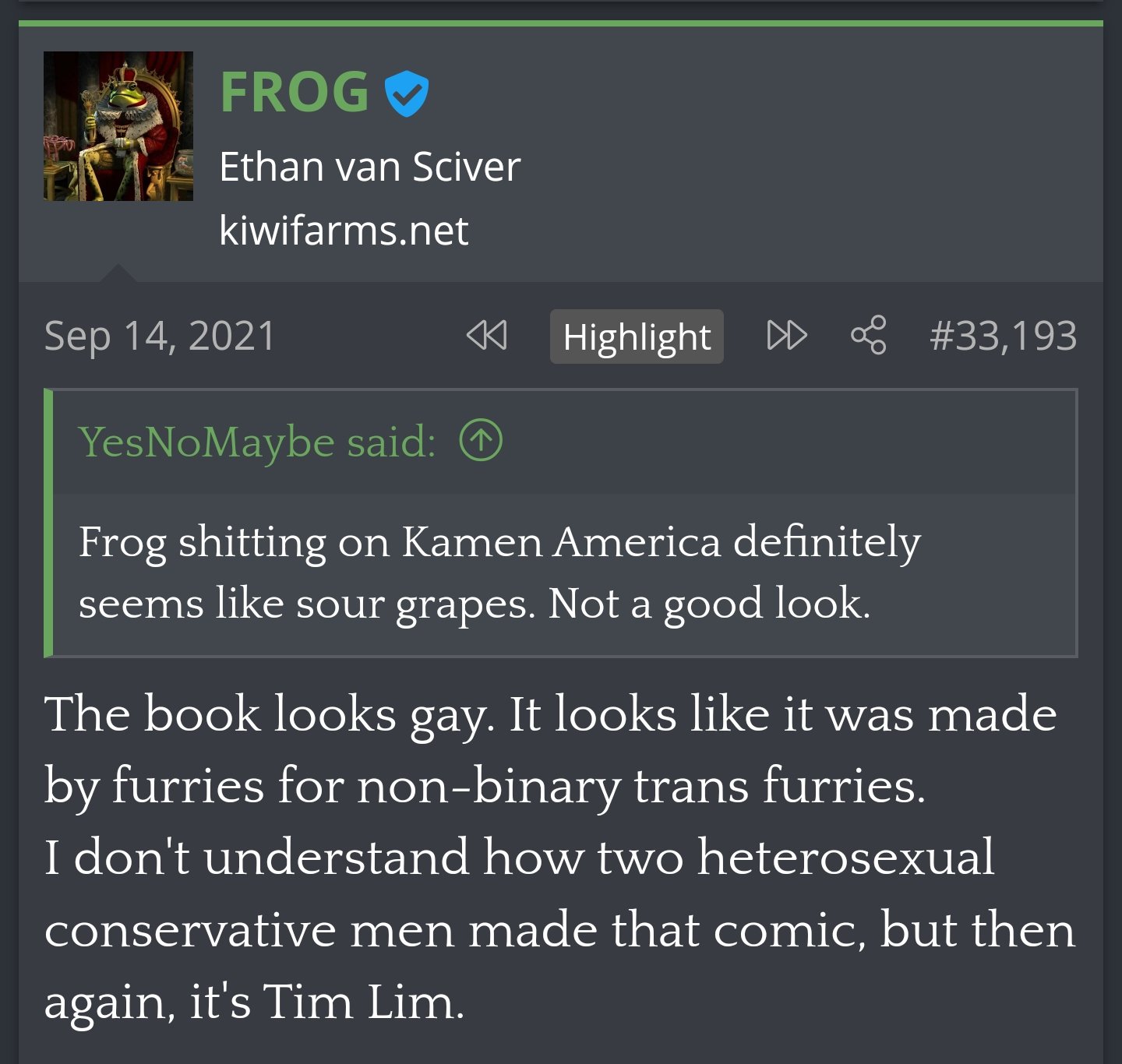Comicsgate Twitter - A Look At The Online Chatter
Table of Contents
- What is Comicsgate, Anyway?
- Who is Behind the Comicsgate Twitter Conversations?
- Why Does Comicsgate Still Have a Presence on Twitter?
- How Does Comicsgate Twitter Relate to Past Online Discussions?
- The Echoes of Ethics in Games on Comicsgate Twitter
- Perceptions of Comic Quality on Comicsgate Twitter
- The Political Angle of Comicsgate Twitter Discussions
- Varied Opinions on Comicsgate Twitter
When some folks first heard about something called Comicsgate, there was, it seems, a good bit of head-scratching and wondering what it all meant. People often thought of it as a particular sort of movement, a group of people coming together for a common purpose, and that idea really stuck for many. It was not always clear what the big picture was, or what was at the heart of it all, so that initial impression of a collective effort or a shared cause was, in a way, the first thing that came to mind for a good number of observers, especially when they first encountered the discussions happening on platforms like Twitter.
This initial reaction of seeing it as a movement, a concerted effort, suggests a certain kind of expectation. You know, when a name like "Comicsgate" pops up, it naturally brings to mind a sense of something organized, something with a set of aims or a particular direction. For a lot of people, that was their starting point, a basic idea that shaped how they then viewed the discussions and disagreements that would unfold. It's almost as if the very name itself carries a certain weight, hinting at a broader push or a collective stand on issues that matter to people who enjoy comics.
Among those who create comics for a living, the "comics pros" as they are often called, there have been, it seems, various reactions to this whole situation. Some might have seen it one way, while others saw it quite differently, which is pretty typical when something new and a bit confusing enters the public conversation. The way these discussions unfold, particularly on a quick-moving platform like Twitter, can really shape how different groups, including the people who make comics, come to grips with what is being said and done. It’s a very dynamic sort of thing, how these conversations take shape and shift over time.
- Gwendoline Christie And Giles Deacon
- Elsie Hewitt And Jason Sudeikis
- Who Married Clint Black
- Richard Branson Girlfriend
- Sebastian Stan Jennifer Morrison
What is Comicsgate, Anyway?
When you look at the discussions surrounding Comicsgate, especially the chatter you might find on Twitter, it appears that for some, this whole situation felt quite distinct, in certain particular ways. It wasn't just another online disagreement; there was something about its character or the way it presented itself that made it stand apart. This feeling of being different suggests that it had qualities that weren't easily grouped with other online happenings, giving it a unique presence in the broader landscape of digital talks and arguments. You could say it had its own particular flavor, a sort of feel that was not quite like anything else going on.
This sense of uniqueness, that it always felt different, suggests that the patterns of interaction, the types of points being made, or even the general atmosphere around Comicsgate had its own special qualities. It wasn't just the subject matter, but perhaps the manner in which it was discussed, or the people who were most vocal about it. For those observing from a distance, or even those involved, this distinct feeling might have been a key part of how they understood what Comicsgate was, or perhaps what it aimed to be. It’s a bit like recognizing a specific tune in a crowd of sounds, it just has its own rhythm.
And so, because of these perceived differences, and also because those involved believe they have achieved some kind of good outcomes, Comicsgate is still very much a topic of conversation. The idea that their efforts have led to some successes, however those might be defined by the people taking part, gives the whole thing a reason to keep going. It’s almost as if feeling that you’ve made a difference, even a small one, provides the fuel for continued engagement and discussion, especially on platforms like Comicsgate Twitter where ideas and opinions are shared so freely. This belief in having made a mark really helps keep the whole thing alive and well.
- What Year Did Richard Pryor Set Himself On Fire
- Christy Perry Big Bend
- Who Was Pete Holmes Married To
- Alicia Keys Spouse
- Cheryl Tiegs Fishnet Suit
The continued presence, then, is tied to this feeling of accomplishment. If people believe their actions have brought about desired results, or that they have made their points heard, they are more likely to keep pushing forward. This is a pretty common human trait, you know, wanting to continue something when you feel it has been worthwhile. So, in a way, the ongoing discussions and the persistent nature of Comicsgate on platforms like Twitter are a direct result of these perceived wins, whatever they might be. It really shows how much belief in progress can drive a group to keep going.
Who is Behind the Comicsgate Twitter Conversations?
It has been noted that the people most often involved in these discussions, the ones making a lot of the noise, are mostly grown men who are past their younger years, but who sometimes act with the sort of behavior you might expect from very young boys. This observation points to a particular style of interaction, one that might involve outbursts or ways of expressing disagreement that feel less mature than one might hope for from adults. It suggests a certain kind of online conduct that can be, you know, a bit surprising to encounter from people who are supposed to be quite grown up. This particular characteristic seems to be a recurring theme in how some people view the group.
This description of the participants paints a picture of a group where the way people communicate might not always be what you expect from adults. The idea of grown men acting in a way that brings to mind the actions of a child suggests a level of immaturity in how disagreements are handled or how points are argued. It could mean shouting, or name-calling, or perhaps a general unwillingness to engage in calm, collected discussion. This aspect, the perceived age and the manner of expression, is often brought up when people talk about the overall tone and nature of the Comicsgate Twitter discussions. It’s a pretty striking detail, honestly, when you think about it.
The observation that these are mostly middle-aged individuals behaving in a way that seems more fitting for someone much younger is a significant part of the general impression some people have of Comicsgate. It’s not just about the ideas being discussed, but also about the style of the discussion itself. This particular point suggests that the manner of interaction can sometimes overshadow the actual content of the arguments, making it harder for some to take the discussions seriously. It’s almost as if the way things are said becomes as important, if not more important, than what is being said, especially in the fast-paced world of Comicsgate Twitter.
Why Does Comicsgate Still Have a Presence on Twitter?
The source text points out that Comicsgate continues to exist and make its presence felt because the people involved feel they have, in some manner, achieved good results. This belief in having had successes, even if they are not universally acknowledged or understood by everyone, provides a strong motivation for the group to keep going. It’s a very human thing, after all, to stick with something when you believe your efforts are paying off. So, the ongoing chatter and activity on Comicsgate Twitter, for instance, can be seen as a direct outcome of this shared feeling of progress and effective action.
This sense of accomplishment, whether it’s about influencing comic book stories, getting certain creators to respond, or simply raising awareness for their viewpoints, acts as a powerful reason for continued engagement. It suggests that the movement, or whatever one chooses to call it, is not just about airing grievances but also about a perceived ability to make a tangible impact. This feeling of making a difference, even a small one, can be incredibly motivating for a group of people who feel strongly about a particular issue. It really helps to explain why the discussions keep popping up.
So, the persistence of Comicsgate on platforms like Twitter is, in essence, fueled by this internal conviction that their efforts have not been in vain. It is this perception of having achieved certain goals or having moved the needle in some way that encourages continued participation and vocal expression. Without this sense of success, it might be fair to wonder if the energy would remain as strong. But as it stands, that belief in positive outcomes seems to keep the conversation going, and that is a rather key element in its continued existence.
How Does Comicsgate Twitter Relate to Past Online Discussions?
For those who haven't spent a lot of time getting up to speed on Comicsgate, there's often a connection made to earlier online discussions, specifically something called Gamergate. One person mentioned following a bit of that earlier situation, which had to do with ethics in games. This connection is pretty important because it suggests a similar kind of online behavior or a shared set of concerns that carried over from one community to another. It’s almost as if the groundwork for Comicsgate was, in some ways, laid by the experiences and patterns seen in the Gamergate discussions, especially the way people talked about fairness and principles in their chosen entertainment forms.
The Echoes of Ethics in Games on Comicsgate Twitter
The very name "Comicsgate" itself is, you know, a direct nod to "Gamergate." This connection is not just a coincidence; it's a clear signal that there's a perceived link between the two. The original text even points out, "because of course it is," which shows a kind of expectation that if there's a "gate" controversy in one area, another one might spring up in a similar way in a different field. This naming convention really highlights the idea that the people involved in Comicsgate saw parallels between their concerns in the world of comics and the earlier discussions that happened in the world of video games. It’s a pretty straightforward way of saying, "We see a pattern here."
So, Comicsgate, which got its name from Gamergate, was, and continues to be, a sort of collective effort among people who enjoy comic books. Their main purpose, as the source text tells us, was to speak out against what they believed was a decline in the overall quality of comic books. This suggests a deep concern for the state of the art form, a feeling that things were not as good as they once were, or perhaps not heading in the right direction. It's a sentiment that many passionate fans can relate to, wanting the things they love to be at their very best. This opposition to perceived falling standards is a core idea behind the whole Comicsgate movement, as it plays out on Comicsgate Twitter and elsewhere.
Perceptions of Comic Quality on Comicsgate Twitter
The heart of the Comicsgate discussion, particularly as it appears on Comicsgate Twitter, seems to be a strong feeling that the quality of comic books has been going downhill. This perception of a decline is a central motivator for the people who participate in these discussions. It's not just a casual complaint; it appears to be a deeply held belief that the stories, the artwork, or perhaps the themes within comics are not meeting the expectations of a certain segment of the readership. This concern about quality is what, in a way, brought many of these fans together, giving them a shared point of view to express.
When people talk about the "declining quality of comic," it covers a lot of ground. It could mean that the writing isn't as sharp, or that the illustrations aren't as engaging, or even that the types of stories being told don't resonate with them anymore. This feeling of disappointment, or a sense that something precious is being lost, really drives the conversation. For many, this isn't just about personal taste; it's about what they see as fundamental changes that are, in their view, making comics less enjoyable or less meaningful. This is a very powerful sentiment that fuels a lot of the online debate.
The idea that comics are not as good as they once were, or that they are moving in a direction that displeases a certain group of fans, is a recurring theme in the discussions around Comicsgate. This perceived drop in standards is what motivates many to speak up, to voice their concerns, and to try and bring about some kind of change. It’s a very passionate response to something they care deeply about, and that passion is what keeps the discussions lively and often quite intense on platforms where opinions are shared so widely. You can see how that kind of feeling would make people want to talk about it a lot.
The Political Angle of Comicsgate Twitter Discussions
The source text also touches on the idea that this group, Comicsgate, was established on a foundation that involves politics. It suggests that there's a political dimension to their origins or their aims, even if it's not always explicitly stated or universally agreed upon. This idea of being "founded on being politically" hints that the motivations or the underlying beliefs of the group have a connection to broader political viewpoints or social ideas. It means that the discussions are not just about comics as an art form, but also about how certain political or social perspectives might be influencing the content or the creation of those comics. This political thread is, you know, a pretty important part of the whole picture for some observers.
When a group is described as being "founded on being politically," it implies that their core principles or their reason for coming together have a basis in political thought or ideology. This can mean that their disagreements with the comic book industry are not purely about artistic merit, but also about the perceived political leanings or messages within the comics themselves. It suggests that for some, the issues at stake are tied to wider cultural or societal debates. This political element is a very significant aspect of how Comicsgate is understood by those outside of it, and it often shapes the way the discussions unfold on Comicsgate Twitter.
So, the political aspect is, in a way, woven into the very fabric of Comicsgate. It's not just a side note; it's presented as a foundational element. This means that when you see discussions about Comicsgate, particularly on a platform like Twitter, there's often an underlying current of political opinion or a specific political lens through which the issues are viewed. This can make the conversations quite charged, as different political perspectives clash over the direction and content of comic books. It really adds another layer to the already complex set of opinions and arguments being shared.
Varied Opinions on Comicsgate Twitter
It's fair to say that within the discussions around Comicsgate, there are many different viewpoints, and not everyone shares the same reasons for their involvement or their support. The source text points out that while there are certainly people who hold hateful reasons for supporting certain ideas or creators, there are also a great number of others who do not. This suggests that the group is not a single, unified block of thought, but rather a collection of individuals with a range of motivations and beliefs. It’s a pretty important distinction to make, as it means you can't just paint everyone with the same brush.
This variety of reasons means that when you look at the chatter on Comicsgate Twitter, you're likely to find a broad spectrum of opinions and intentions. Some people might be genuinely concerned about the quality of comics, others might be reacting to perceived political shifts, and still others might have motivations that are less positive. The statement highlights that it's too simple to assume everyone involved has the same kind of reasoning behind their actions. It really shows that human groups are often quite complex, with many different threads coming together to form the whole.
So, while some individuals might indeed harbor feelings of ill will or have very negative reasons for their support, it's also true that a lot of other people simply do not. This nuance is quite important for a full picture of what Comicsgate represents to different people. It means that the online conversations, especially on a platform like Twitter where many voices can be heard, are a mixture of various perspectives and aims. This kind of diversity in motivation is, you know, a common feature of many large online discussions, and Comicsgate is no different in that regard.
- Amanda Perterson
- Selena Gomez Joe Jonas
- Terry Saban Young
- Who Is Megan Moroney Dating
- Burt Reynolds Playgirl Pose

Twitter Advertising: Real-Time Marketing for Brands - Purple Cow

Vielned on Twitter: "The new @jondelarroz Show with hosts Edwin

Adolfito Zapatero on Twitter: "@Ahabs_Mind It's ironic that owing its